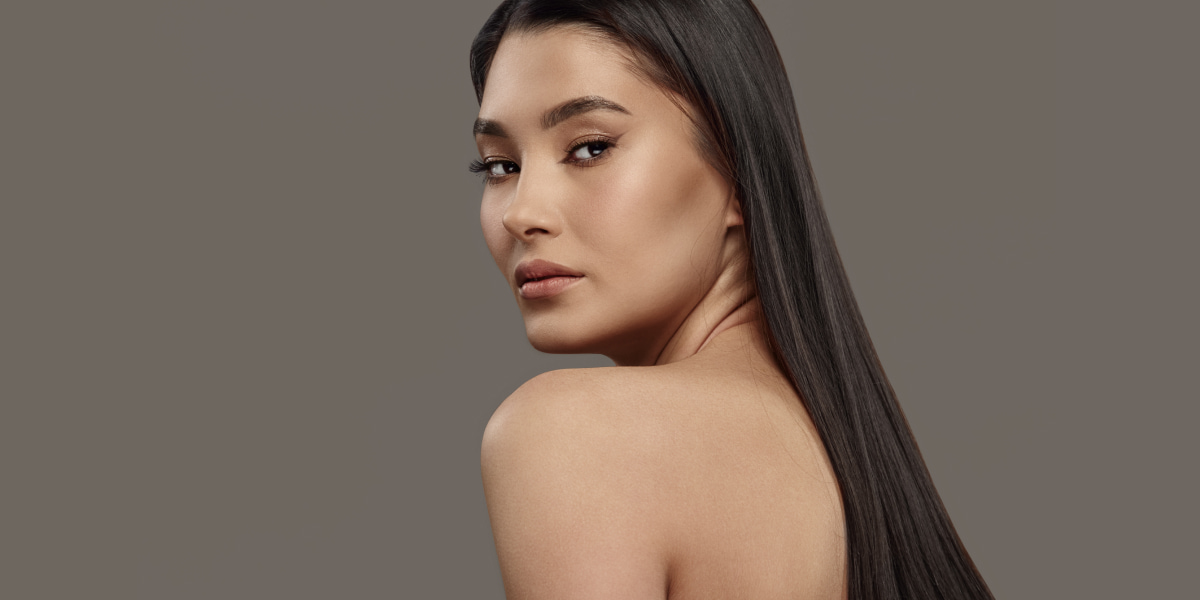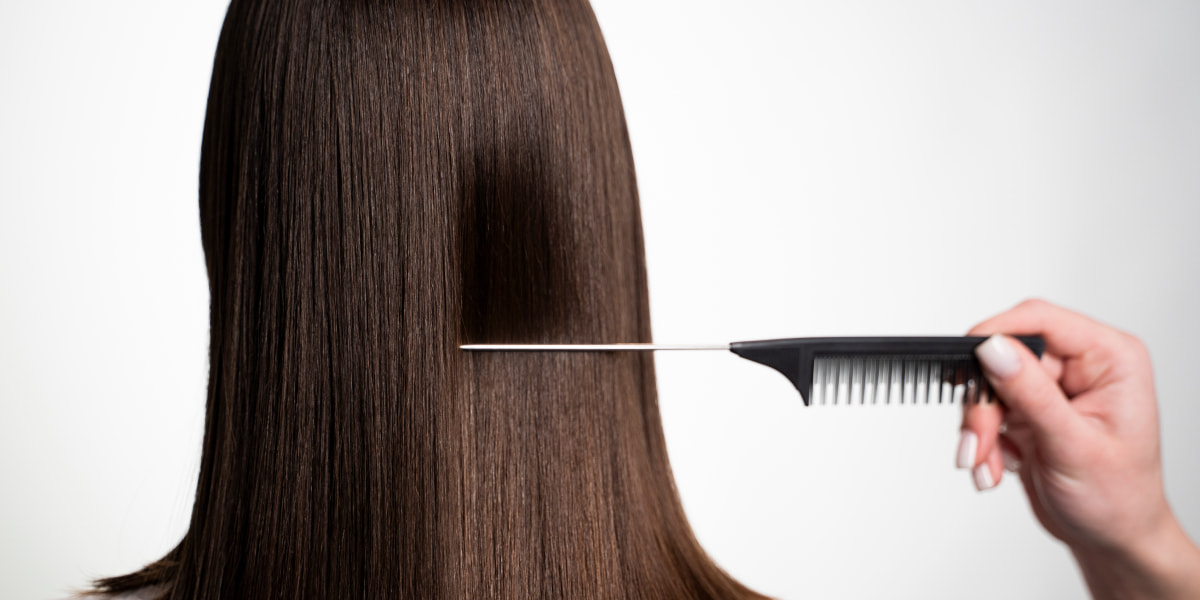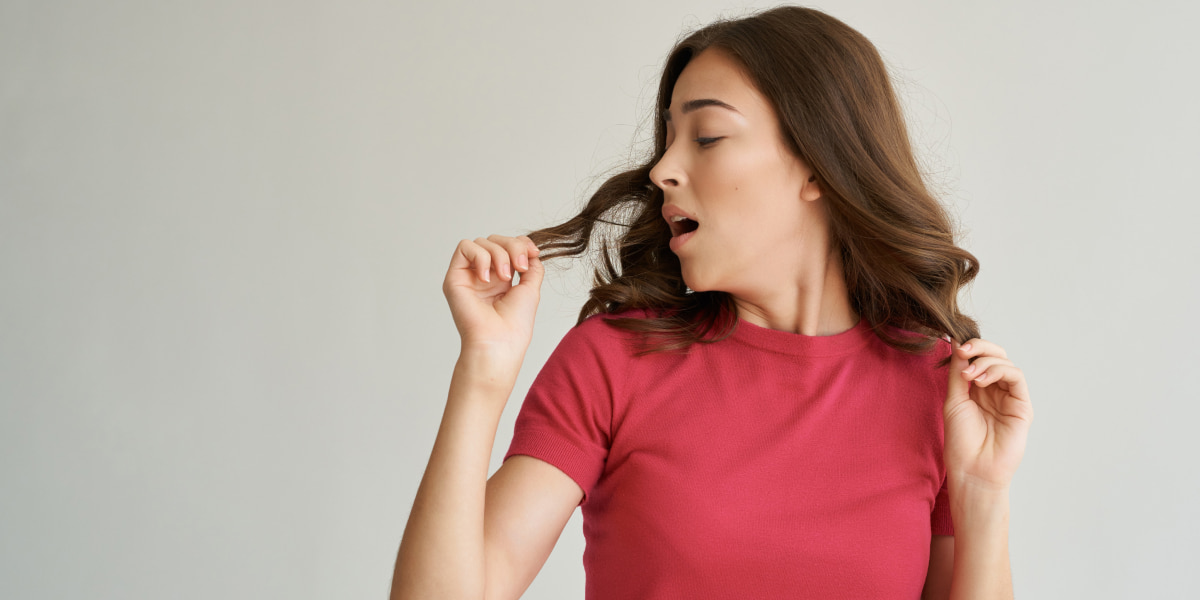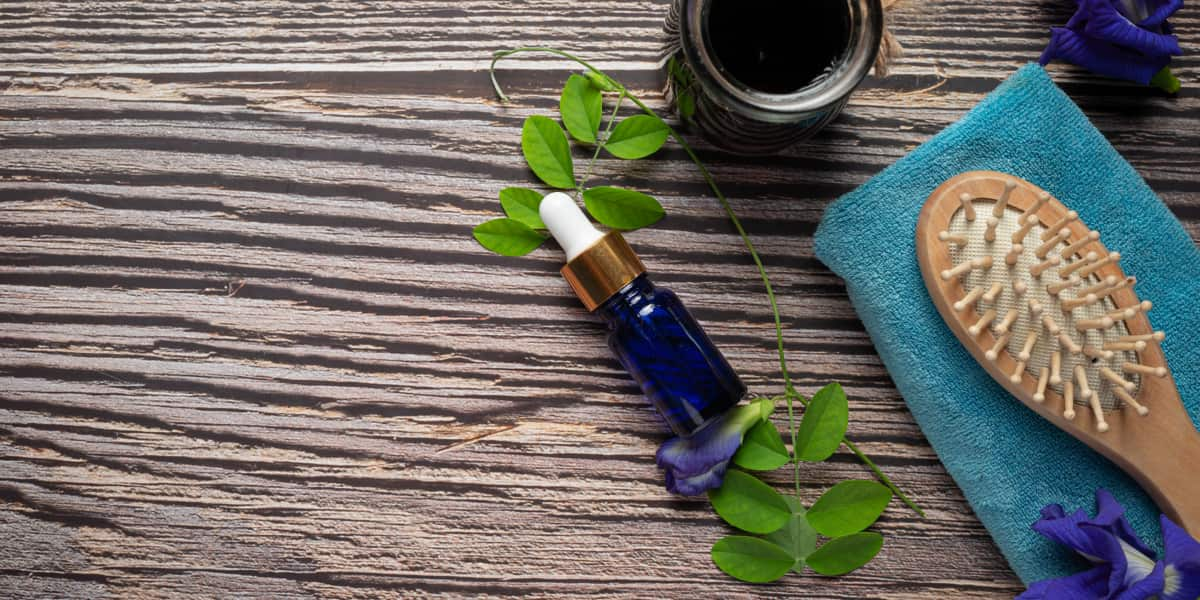Published on October 17th, 2022
Last updated on January 25th, 2023
How To Use Tea Tree Oil On Scalp? Ultimate Guide
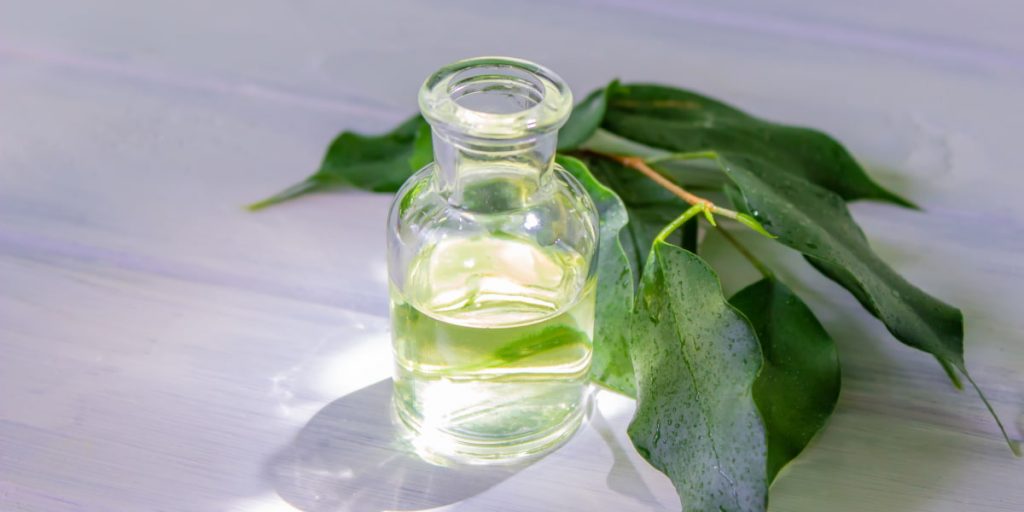
Tea tree oil has gained popularity in caring tools because it has proven to be a productive way to treat dandruff and other issues with the skin. Tea tree oil (or melaleuca oil, sometimes called) is used as a pure essential oil and an active ingredient in products that provide antimicrobial, antiseptic, and anti-inflammatory properties.
Essential oils, including tree oil, have been used in alternative medicine for hair for thousands of years. In addition to the pleasant scent that provides aromatherapy, many essential oils are believed to have biological properties, such as antiseptic and antifungal properties. One such oil is tea tree oil, which has been used in medicine in Australia for over a century because of its healing properties.
Does it make sense to use fragrant tea tree oil to fight dandruff? What is its value, how to properly use it on the curls, and what are the nuances?
What Are The Benefits Of Tea Tree Oil For Hair And Scalp?
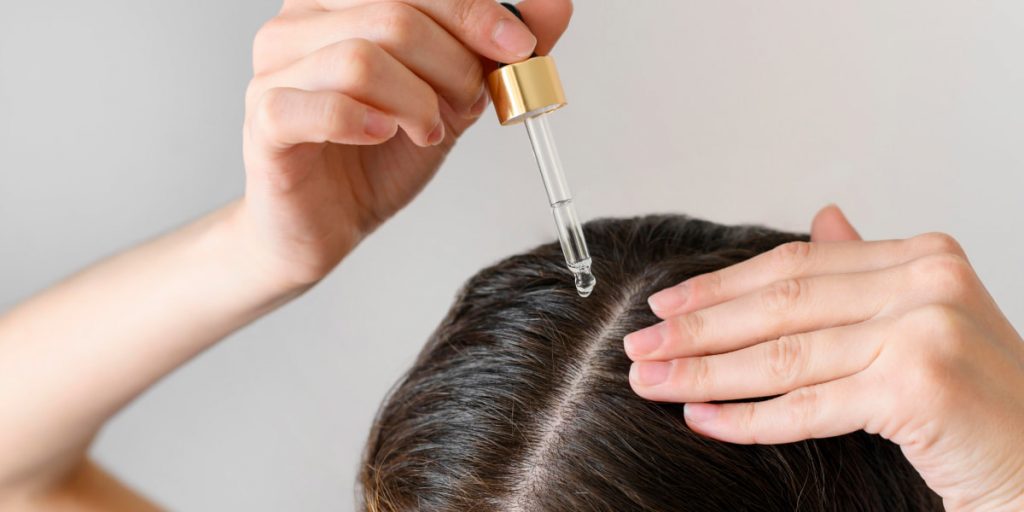
Tea tree oil can transform your hair, starting with the scalp. Its antimicrobial, antibacterial, and anti-inflammatory properties make it a powerful remedy for dandruff, improving overall scalp health. Healthy hair and new growth begin with the scalp, so improving scalp health should be the first step in any attempt to accelerate hair growth.
When using tea tree oil for hair and dry scalp care, it is important to ensure that you use the essential oil and not just a fragrance oil, as fragrance oils do not have the same health benefits. Essential oils, including tea tree oil, are obtained by hydrodistillation, water vapor distillation, dry distillation, or mechanical cold pressing. They differ from aromatic oils, which are often made in the laboratory. So, let’s consider the benefits:
1. Fights Flakes Of Dandruff
Dandruff is usually caused by yeast affecting the scalp. Participants in this study who used tea tree oil shampoo showed a 41% improvement in dandruff symptoms. In addition, tea tree oil can improve the itchy scalp associated with dandruff because it fights the yeast that forms flakes.
2. Antioxidant And Antimicrobial Properties
Tea tree oil can alleviate other itchy scalp conditions, such as seborrhea dermatitis. It contains powerful antioxidants that help relieve redness, diluting scalp conditions.
3. Reduces Inflammation
Tea tree oil is also thought to help reduce hair inflammation by specific inflammatory markers. Tea tree oil may have anti-inflammatory properties due to its antioxidants. Scalp inflammation is one of the leading causes of hair loss, so reducing inflammation can prevent future hair loss.
4. Regulates Oil Production
Oily hair can often result from dandruff or other bacteria on the scalp. Acting on the root of the problem, tea tree oil can help regulate oil production for the dry scalp, resulting in healthier skin and more beautiful hair.
5. All-Natural Disinfection
contact with head lice frequently means using harsh chemical treatments to contain the infestation and prevent new eggs from hatching. Research has shown that tea tree oil is an effective lice treatment for those looking for a holistic approach to disinfection.
6. Can Stimulate Hair Growth
A healthy scalp is essential for new hair growth. The relationship between tea tree oil for hair growth is not direct, but improving overall scalp health can help create a healthy environment for hair growth.
Does Tea Tree Oil Help With Hair Loss?
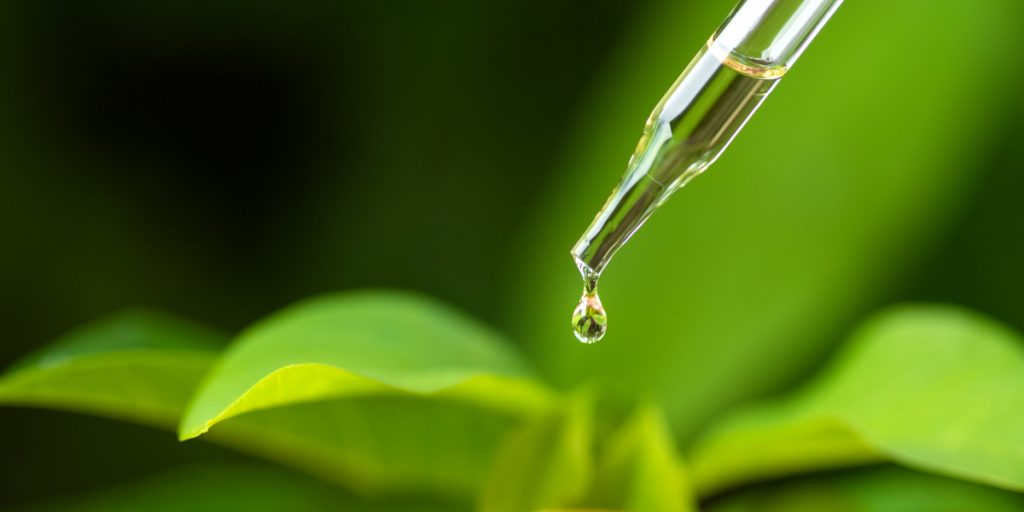
Tea tree oil will not cure hair loss and split ends on the itchy scalp, but by stimulating metabolic processes and collagen production, strands should theoretically become thicker and healthier. Some evidence suggests that hair thinning associated with a greasy scalp can be stopped by using essential oil. However, there is no scientific confirmation of this yet. Hair loss is a natural process because hair goes through three phases of life:
- anagen is associated with growth;
- catagen with a transitional state;
- telogen with a sleeping and resting stage.
Hair can go into telogen for various reasons and is often irreversible. However, modern cosmetic products make it possible to speed up the growth of new ones in place of those that have fallen out and strengthen the scalp. However, the oil is not patented as a medicinal remedy; it is used as part of medicine. It has potential toxicity, so it should not be swallowed.
How To Use Tea Tree Oil For Hair To Prevent Itchy Scalp?
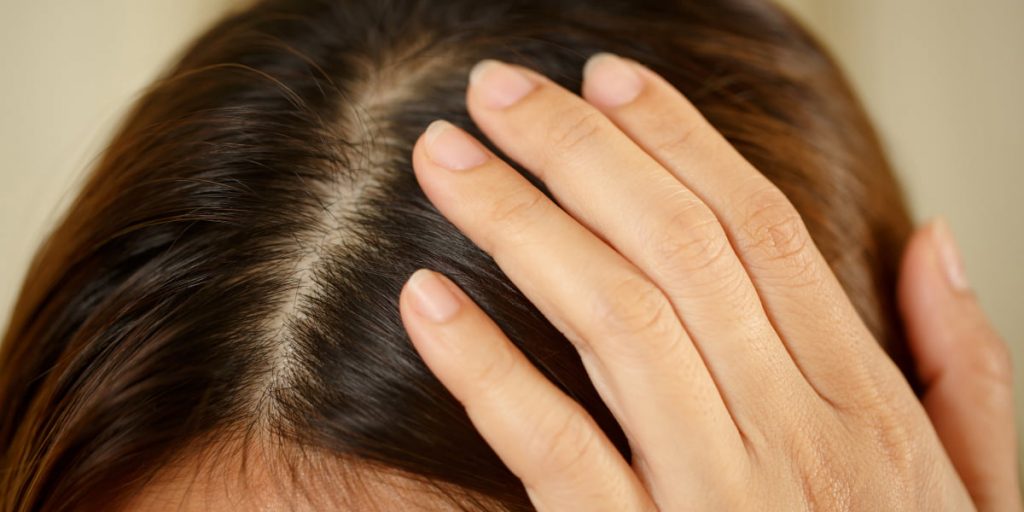
Tea tree oil can be used in two ways to improve scalp health: as a pure essential oil or as an active ingredient in shampoos. Because of the high sensitivity of tea tree oil on the scalp, diluting it with carrier oil before an application is recommended. Tea tree oil is best applied to the scalp by adding it to shampoo, especially for those with more sensitive skin, to minimize the risk of hypersensitivity or irritation. It’s also important to check the label to see how much tea tree oil is present so you know what to expect, as higher concentrations are more likely to irritate. As with any new ingredient, testing on a small skin area is significant before applying it to the entire head.
1. Add Drops Of Tea Tree Oil To Your Shampoo
Tea tree oil can be added to your favorite shampoo to avoid irritation. Add two to three drops of tea tree oil to the palm of your hand and mix with your regular amount of shampoo. Leave it on for five minutes and then rinse thoroughly. Do not add directly to the shampoo bottle; you may need to discontinue use if irritation occurs.
2. Prepare An Itchy Scalp Massage With Tea Tree Oil
Applying tea tree oil after shampooing with your fingertips is recommended, as massaging it into a damp scalp. Since it’s a non-washable product, it can be helpful to mix two to three drops of tea tree oil with your favorite carrier oil, such as almond or coconut oil, to prevent irritation. Massaging your scalp also increases blood flow, which can promote hair growth.
3. Combine Tree Oil With Your Favorite Mask For Hair
Add a few drops of tea tree oil to your favorite deep conditioning product to get rid of dandruff and dryness at the same time.
4. Prepare The Spray For Shiny Hair
One of the most significant benefits of tea tree oil for hair is a spray based on tea tree oil. You need 30 drops of oil and 50 ml of alcohol for this. Another 50 ml of pure water is added to this mixture. The resulting tincture should be rubbed into the hair’s roots and left for the night. Prepared composition is recommended to use no more than 2-3 times a week. The result will not make you wait long. After a few treatments, the hair will become shiny and beautiful, and the dandruff will gradually disappear.
5. Prepare Anti-Dandruff Mask
You can use tea tree oil not only by adding it to prepared products but also by preparing a mask for dry scalp and hair. For this purpose, you should take burdock or olive oil as a base, warm it up slightly and add a few drops of tea tree oil in a ratio of 5-6 drops per two spoons of base oil. Add a few drops of lavender, bergamot, or chamomile oil to this mixture. The resulting product should be rubbed gently with massaging movements on the scalp and leave for 15-20 minutes. Wash the mask with shampoo and warm water. In case of allergic reactions, itching or burning, the mask should be washed off immediately.
6. Prepare The Mask For Weakened Hair
For hair after perms or after coloring is a great nourishing mask of chicken egg yolk, burdock oil and tea tree oil (to one yolk add a spoonful of burdock oil and 5 drops of tea tree oil). After rubbing it into the hair roots, leave it for 15-20 minutes. It is recommended to repeat the procedure once a week for a month.
7. Use Products For Hair With Tea Tree Oil
Self-mixing products can sometimes result in a stronger-than-expected result that can irritate. Hair professionals recommend buying tea tree oil products to be sure of their concentration.
Summary
First, tea tree oil is beneficial for the dry scalp, regeneration and cell renewal. Especially the owners of oily head skin prone to dandruff and in need of detoxification will appreciate the benefit of this oil. Its properties are directly related to the regeneration of the epidermis. But it is still worth remembering about allergic reactions. Despite the toxicity of tea tree oil for hair and the dubious reputation of essential oils as strong allergens, there is always a possibility to reduce the risks to a minimum. Use ready-made products with tea tree oil that are suitable for you. Act strictly according to the manufacturer’s instructions, add some proper habits, and your scalp will thank you.
FAQ
Does Tea Tree Oil Help In Hair Grow?
Yes, tea tree oil stimulates hair growth, refreshes and has antiseptic properties. But there is no scientific evidence to support this judgement. You can prepare the mask for hair growth and make it stronger. To prepare the mask, mix the aloe gel in half with water in a cup. Add a few drops of tea tree essential oil to the mixture. Apply the mask to your hair for 30-40 minutes.
Does Tea Tree Oil Help With Dandruff?
Yes, tea tree oil effectively fights dandruff. Natural ingredients’ unique content can relieve scalp inflammation, eliminate fungus and regulate the sebaceous glands. In addition, the extract of the Australian plant perfectly strengthens the curls due to the active nourishment and improvement of microcirculation.
How Quickly Can You Get Rid Of Dandruff With Tea Tree Oil?
You should not expect an immediate effect. On average, it takes two months of regular use of the drug to eliminate dandruff. Remember that the most significant thing in-home care is consistency and permanence.
How Do I Do The Allergy Test For Tea Tree Oil?
Put a drop of base oil and essential oil on your elbow bend. If, after 8 hours, there is no allergic reaction in the form of redness and scratching, then feel free to enjoy the healing effects of the essential oils.


